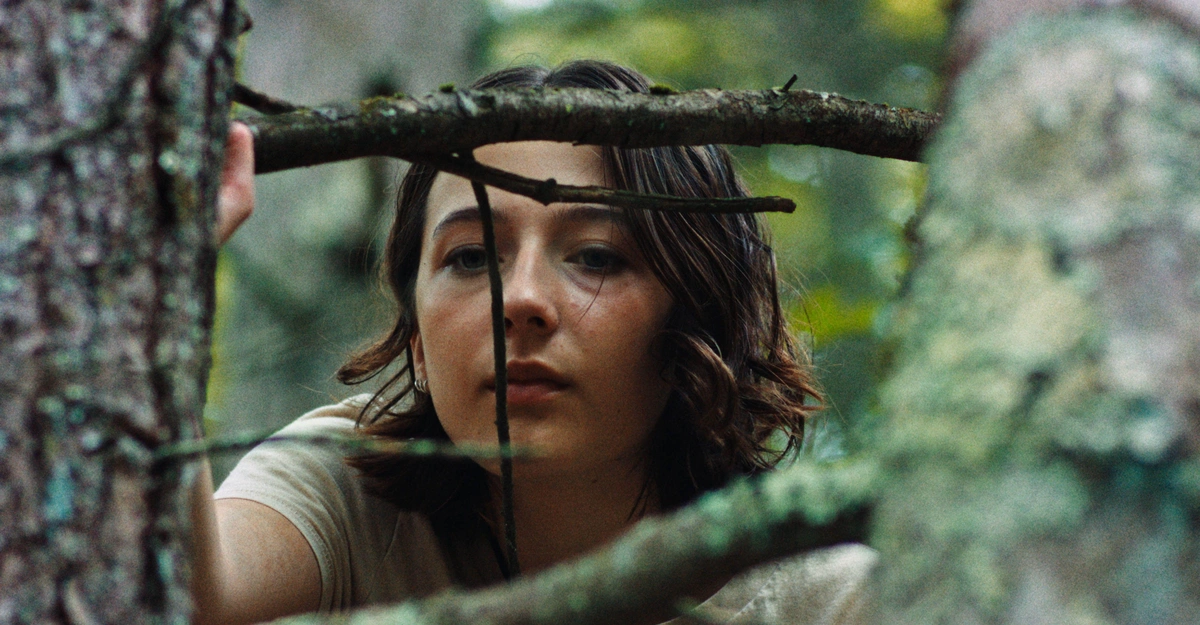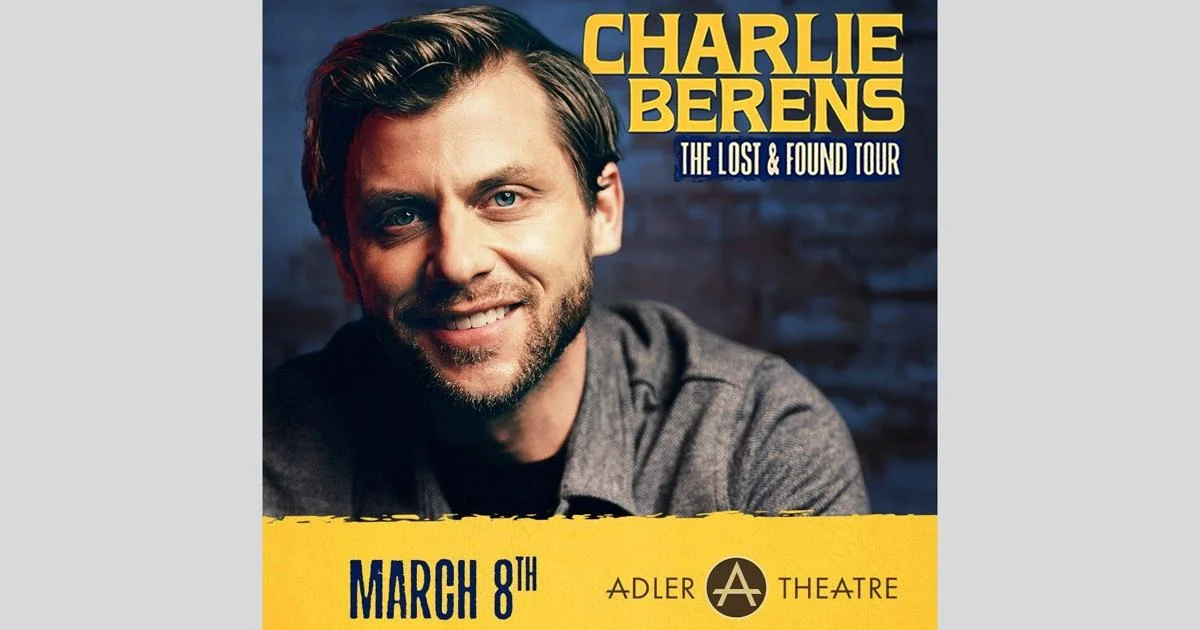
This is an edition of The Atlantic Daily, a newsletter that guides you through the biggest stories of the day, helps you discover new ideas, and recommends the best in culture. Sign up for it here.
Welcome back to The Daily’s Sunday culture edition, in which one Atlantic writer or editor reveals what’s keeping them entertained. Today’s special guest is Quinta Jurecic, a staff writer who has covered the influencer FBI, why the Supreme Court won’t explain itself, and the coming D.C.-crime boomerang.
Quinta recommends Good One, a movie that tilts its peaceful premise on its axis. She is also a lifelong fan of the Mountain Goats, enjoys watching a Dungeons & Dragons game show, and was moved while reading Dinaw Mengestu’s latest book, Someone Like Us.
The Culture Survey: Quinta Jurecic
The last thing that made me cry: I watched the 2024 film Good One on the last leg of a long-haul flight. On the surface, it’s a tranquil movie; long stretches are filled with the sounds of a summer forest. Still, it woke me right up. The movie follows a camping trip with a teenage girl named Sam, her father, and his friend Matt, a sad-sack recent divorcé. Over the course of their time in the woods, Sam quietly navigates her changing relationship with her father and her role in regard to the dynamic between the two men. Then something happens that tilts the film on its axis. What stung me was not just the precision with which Good One identifies Sam’s discomfort, but her anger and disappointment when her father fails to protect her. It is, in the end, a movie about growing up. [Related: The Sundance gem Good One is deceptively simple.]
The last thing that made me snort with laughter: I have largely resisted the resurgence of Dungeons & Dragons because I am far too self-conscious to ever pretend to be an elf. But I have friends and family members who are big fans, and they have lassoed me into watching Dimension 20, a show in which people play D&D and follow rules that I don’t understand. Candidly, I’m not sure I fully understand the jokes, but I’m having a good time.
A musical artist who means a lot to me: The Mountain Goats, the shape-shifting indie band led by (and sometimes solely featuring) John Darnielle, have been there for me at every stage of my life—and because Darnielle is so prolific, the band has a particular album for each of those stages. All Hail West Texas was the soundtrack to my college depression. Transcendental Youth was the soundtrack for realizing that I had been depressed in college. During a period when I was traveling often for family reasons, I listened to Beat the Champ and Bleed Out, concept albums about (respectively) professional wrestling and action movies. My favorite Mountain Goats song, however, is Darnielle’s over-the-top live cover of the Ace of Base song “The Sign.”
The last museum or gallery show that I loved: The Renwick Gallery, a small branch of the Smithsonian American Art Museum that is focused on craft arts, is one of my favorite lesser-known Washington, D.C., museums. This past weekend, I stopped by to check out the gallery’s exhibition of crafts produced for state fairs across the country. Some of them are cheerfully odd (such as the portraits of presidents and celebrities made out of seeds), others are off-putting (my least favorite was a wreath crafted out of human hair), but all display a striking level of skill and care by the artists. Particular highlights include the many beautiful quilts; the enormous, glowing ziggurat of canned goods; and the life-size cow made entirely of butter.
An online creator whom I’m a fan of: I don’t know if fan is the right word, but I am an avid consumer of TikTok content produced by Kala, the software engineer who is building a tunnel under her home in suburban Virginia. She’s been working on it for years and recently restarted construction after local officials halted her project. Why is she building a tunnel? I have no idea. Some of us are simply called to greatness.
The best novel I’ve recently read, and the best work of nonfiction: I recently finished Dinaw Mengestu’s Someone Like Us, a novel set partly in the Ethiopian-immigrant community around Washington, D.C. At the beginning of the novel, the narrator, who lives in Paris, makes a sudden and unexplained decision to abandon his trip home to see his mother for Christmas and flies to Chicago instead. The novel ripples back and forth in time, not explaining his decision exactly—the narrator himself doesn’t seem to understand what he’s doing or why—but adding the texture of family history.
When it comes to nonfiction, I’ve been listening to the audiobook of Karen Hao’s Empire of AI, a deeply reported look inside OpenAI. I often like listening to audiobooks about business disasters, because it’s fun to do the dishes to the sounds of titans of capitalism setting piles of money on fire. But Empire of AI is something different and more interesting. Hao studies the rise of OpenAI, but she also situates the company within both the broader arc of AI research and what she sees as the colonialist reach of American tech companies around the world. [Related: “We’re definitely going to build a bunker before we release AGI.”]
An author I will read anything by: For journalism, Rachel Aviv. For fiction, Roberto Bolaño. For fiction by a living writer, Katie Kitamura.
A poem, or line of poetry, that I return to: I can’t recall how I was first introduced to the poetry of Zbigniew Herbert, a dissident writer in postwar Poland. But I’ve thought a lot about his poem “The Envoy of Mr. Cogito” in recent years:
Here are three Sunday reads from The Atlantic:
The Week Ahead
Essay
What Ever Happened to Getting to First Base?
By Molly Langmuir
The prevailing American beliefs about sex, love, and commitment were, for many years, encapsulated by the 1977 Meat Loaf song “Paradise by the Dashboard Light.” The epic Wagnerian rock duet plays out in three acts: First, a young couple hooks up in a parked car, and the guy pushes the girl for sex. Then the girl declares that, before they go further, she needs to know that the guy will love her until the end of time, which, under duress, he promises to do. Finally, from some point in the future, miserably tied together, the two sing that the end of time can’t come soon enough.
The song stretches for about eight minutes, an absurd length for a single, but it managed to become such a staple of classic rock that, two decades after its release, as teenagers, my friends and I had learned the words without trying. It also contained the metaphor that we used to talk about our early sexual experiences, via an interlude in which the shortstop turned sports announcer Phil Rizzuto calls out a batter’s progress as he rounds the bases: “First base,” any listener would have understood, was a kiss; a “home run” represented intercourse. Although my peers and I hardly required a lifetime commitment from a partner to have sex, I did take for granted that sexual encounters and relationships typically unfolded in a certain order, with clear steps.
Read the full article.
More in Culture
Catch Up on The Atlantic
Photo Album
Take a look at the winning and honored images from this year’s Natural Landscape Photography Awards, selected from more than 11,000 entries.
Rafaela Jinich contributed to this newsletter.
Play our daily crossword.
Explore all of our newsletters.



